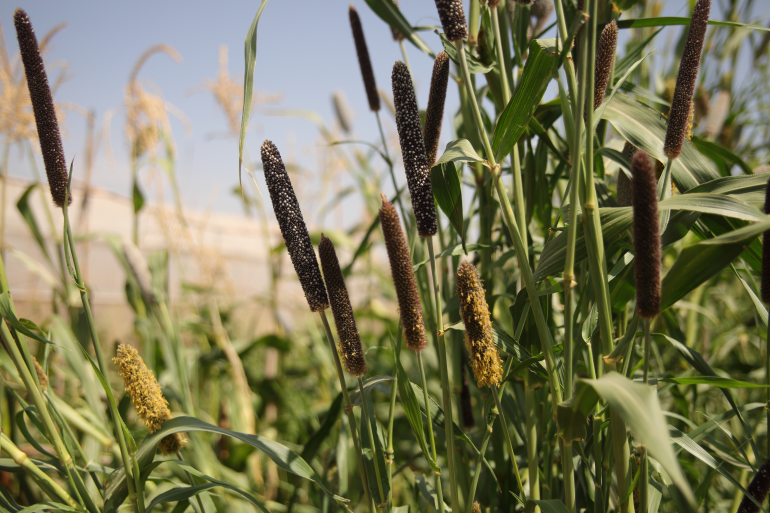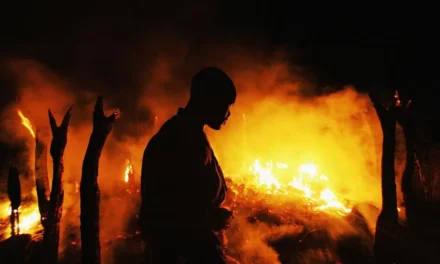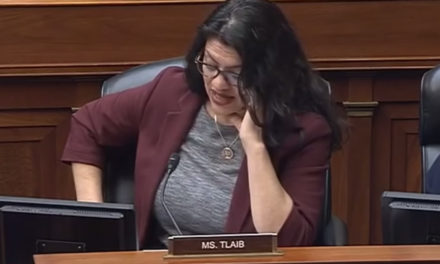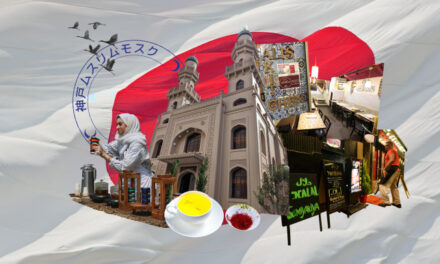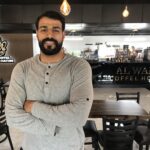The innovative project aims to heal social divides through agriculture and highlight the important role Syrian refugees play in farms across Lebanon [Tessa Fox/Al Jazeera]
Beqaa Valley, Lebanon – At 11am, Erica Accari retreats to the shade from the energy-zapping 36C (96.8F) heat radiating from her farm in eastern Lebanon.
She started her day at 6am, irrigating the 6,000 square metres (64,600sq ft) of mainly vegetable crops before checking all the plants for any disease, then transplanting new seedlings for the next season.
The farm’s name, Turba, meaning soil, couldn’t be more apt for a regenerative organic farm.
“Almost 80 percent of our topsoil is dead worldwide, and it scares me. I don’t know how it doesn’t scare other people,” Accari, 28, told Al Jazeera as she sliced a melon from her field.
Originally from Tripoli in Lebanon’s north, Accari co-founded Turba two years ago with Jehane Akiki, who runs Farms Not Arms, a project that aims to heal social divides through agriculture and highlight the important role Syrian refugees play in farms across the country.
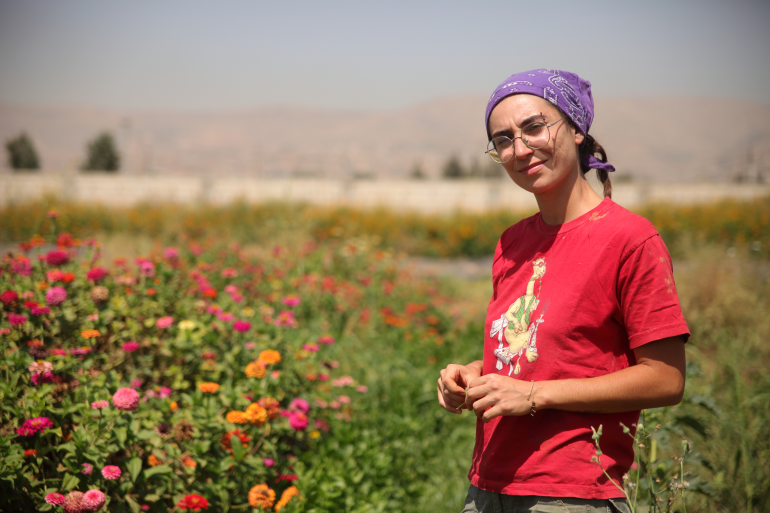
Erica Accari says regenerative farming brings ‘soil back to life’ [Tessa Fox/Al Jazeera]
Together they designed a system for a piece of land that would grow three times more than conventional farming, winning the pair $25,000 in the Rockefeller Foundation Food System Vision Prize to start their own farm.
Once part of a team of four before three migrated from Lebanon, Accari is now tending to the entire summer harvest – including tomatoes, eggplant and squash – by herself, alongside the Syrian refugee family residing on the land.
Turba isn’t conventional, but instead follows agroecology principles that respect the ecosystem while simultaneously enhancing the resilience of communities.
So while farmers around the world are struggling with rising fertiliser prices and shortages because of sanctions on top fertiliser producer Russia following its invasion of Ukraine – and while warnings of food insecurity echo across the globe – Turba is sheltered from the changing market.
As noted by Hassan Machlab, the Lebanon, Jordan and Palestine manager for the International Center for Agricultural Research in the Dry Areas, greater use of fertilisers and pesticides leads to soil contamination rather than a higher production yield.
“The excess use of fertilisers creates the accumulation of nitrates in the land that pollutes the soil and flows to the rivers,” Machlab told Al Jazeera.
‘More balanced ecosystem’
As a regenerative farm, Turba imitates nature as much as possible. Accari doesn’t have to use expensive and imported inputs such as artificial fertilisers and pesticides.
Instead of using the monocropping in conventional farming – where just corn might be planted in a field, in rows just wide enough for tractors to pass – Turba features crops that are planted more densely. Vegetables are interplanted – for example, basil plants in between tomato vines.
“You don’t go to a forest and see only ferns, right? When you have a more balanced ecosystem, there will be more balanced insects that will get rid of each other without having to spray them,” Accari explained.
Pests still do appear on Turba farm, though.
“The trick is to catch the pests as early as possible and then intervene… with natural sprays made from garlic, pepper, baking soda, or whey,” said Accari.
Waste and pollution in Lebanon are not as well regulated as they are elsewhere. Untreated sewerage runs into the Mediterranean Sea, visible even from the mountains. It also flows into the rivers that some farmers use for irrigation.
“For sure, conventional farmers don’t care about this, [and] some of them water straight from the Litani River,” Accari said, referring to the river near her farm in Zahle.
“If you smell or look at the Litani, you know it’s all waste.”
A water test was made when Accari leased the land two years ago, and the sample, taken from a well 80m (262 feet) deep, revealed it was severely polluted.
Accari expected the water quality to be high in nitrates because of runoff from conventional farms’ use of chemical fertilisers. But she was shocked that such a high level was registered from a sample.
“The test results also found a bacteria from human waste that’s not meant to be there,” she said, disgusted.
“This is why this type of farming is so important because with regenerative farming you’re bringing the soil back to life, and the more alive your soil is the cleaner your water is, and vice versa.”
Not only is the soil at Turba now healthier because of using natural pest control, but the structure and nutrients in it also benefit from the amount of compost Accari uses – along with crop rotation according to the seasons and planting winter cover crops such as oats and vetch to combat erosion when it rains.
“Some people think land degradation is land becoming a desert, but it’s not the case. It is when you have soil which you have exhausted from your inputs such as fertilisers, that it becomes less productive,” Machlab explained.
Being a young, motivated woman farming essentially on her own in the Beqaa Valley shocked local farmers at first, Accari said.
“The first time I was here the farmers would say ‘What are you doing? Don’t do it like this.’”
Now they only seem shocked that her methods of farming are so productive, allowing Turba to distribute weekly vegetable boxes and sell at three food markets in the capital Beirut and the local area.
“There’s [still a] barrier with me trying to explain how farming could be done, [particularly] when someone is used to doing something one way. It’s really hard to teach them a new way,” Accari said.
“But with a good spirit and good motivation … slowly, slowly there will be change.”
